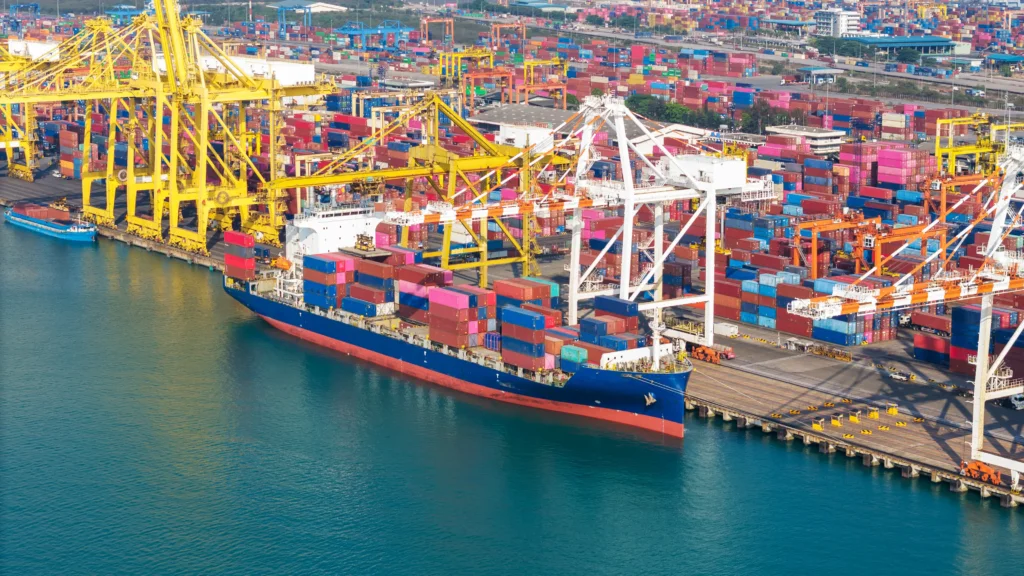This is a bit of an Agatha Christie’s-style-story, with a dynamic criminal plot, particles of an Orient and court-drama finish. However, unlike Christie’s crimes, today, we don’t know who is behind it. This case is a fundamental matter for freight forwarders. It shows that forwarders can be liable for damage caused to the carrier, but this liability is not covered by any existing insurance. This surprising insurance’s gap results from the activities of the forwarders themselves. If you are a forwarder, this gloomy story is just right for you! If you are a carrier, then it does also!
In 2011 a Turkish forwarder received a booking for the transport of 7,054 litres of liquid soap from Turkey to Denmark. He filled the consignment note and put himself as the “sender” and “carrier” as well. Then, our forwarder contracted the Danish forwarder, which was listed as a “receiver” and “successive-carrier“. In turn, the Danish forwarder subcontracted the transport to one of the Danish carriers. So, the who-is-who luckily is behind us, now you can go for popcorn!
The loading took place on June 4, 2011, and the driver left Istanbul for Denmark. Two days later, on Turkish-Bulgarian border, customs control found on the trailer about 11,000 perfume bottles hidden among soap. In these circumstances, Bulgarian customs officers arrested the driver and confiscated the truck, including the whole consignment. The chauffeur was released on bail on July 21, 2011. The vehicle was released in February 2013, when it became clear that the driver and the carrier didn’t play a role in the smuggling.
Seeking justice
Of course, the Danish carrier began to seek justice. He sued both shippers to The Maritime and Commercial Court (case H-57-12) for compensation for:
- the detention of driver and vehicle,
- truck hiring charges,
- vehicle repairing cost,
- any legal expenses.
In his claim, the Danish carrier referred both to art. 11 and 17 of the CMR code, but the key was, of course, Article 11. Let me remind you of the details:
Article 11
- For the purposes of the Customs or other formalities which have to be completed before delivery of the goods, the sender shall attach the necessary documents to the consignment note or place them at the disposal of the carrier and shall furnish him with all the information which he requires.
- The carrier shall not be under any duty to enquire into either the accuracy or adequacy of such documents and information. The sender shall be liable to the carrier for any damage caused by the absence, inadequacy or irregularity of such documents and information, except in the case of some wrongful act or neglect on the part of the carrier.
Our carrier claimed that both the Danish and the Turkish forwarders are responsible to him both jointly and severally. The Danish – because he ordered the transportation, the Turkish – because he issued a CMR consignment note containing incorrect information about the shipment and set himself as a “sender” as well.
The Turkish forwarder stated that he acted as a “sender” only to Danish forwarder, not to the carrier and there was no legal relationship with the haulier.
Hero or victim?
The Danish forwarder was surprised when he found himself in the situation of a hero of a crime novel, who hired a motel’s room, opened the closet and found a dead body there and at that very moment, police inspector entered the room! Well, the court concluded that there was a legal relationship between the Danish forwarder and the carrier because of the shipment’s booking. It was evident that the Danish forwarder had no idea about the smuggling, but his responsibility is not based on the principle of guilt, so his innocence was of no significance. The court had no choice but to acknowledge that he is liable to the carrier for the losses.
The court also shared the argument taken by the Turkish forwarder, that both parties did not stay in any legal relationship and the Turkish forwarder was not “the sender” to the Danish carrier.
However, the court found that the Turkish forwarder was “the sender” to the Danish forwarder, but his claims against the Turkish partner were subject to a limitation period (1 year).
Issues related to the smuggling weren’t a subject of court’s proceedings; therefore, we don’t know who was behind it.
Happy ending. Or not.
To sum up, according to CMR code, a sender bears the responsibility to a carrier for any damage caused by the absence, inadequacy or irregularity of such documents and information. If the forwarder is listed in the consignment note as a sender, this means that he automatically takes responsibility. The forwarder becomes responsible the same as the sender. And what is essential, it is an uncovered risk. No existing insurance covers this risk.
Photo: Pixabay











